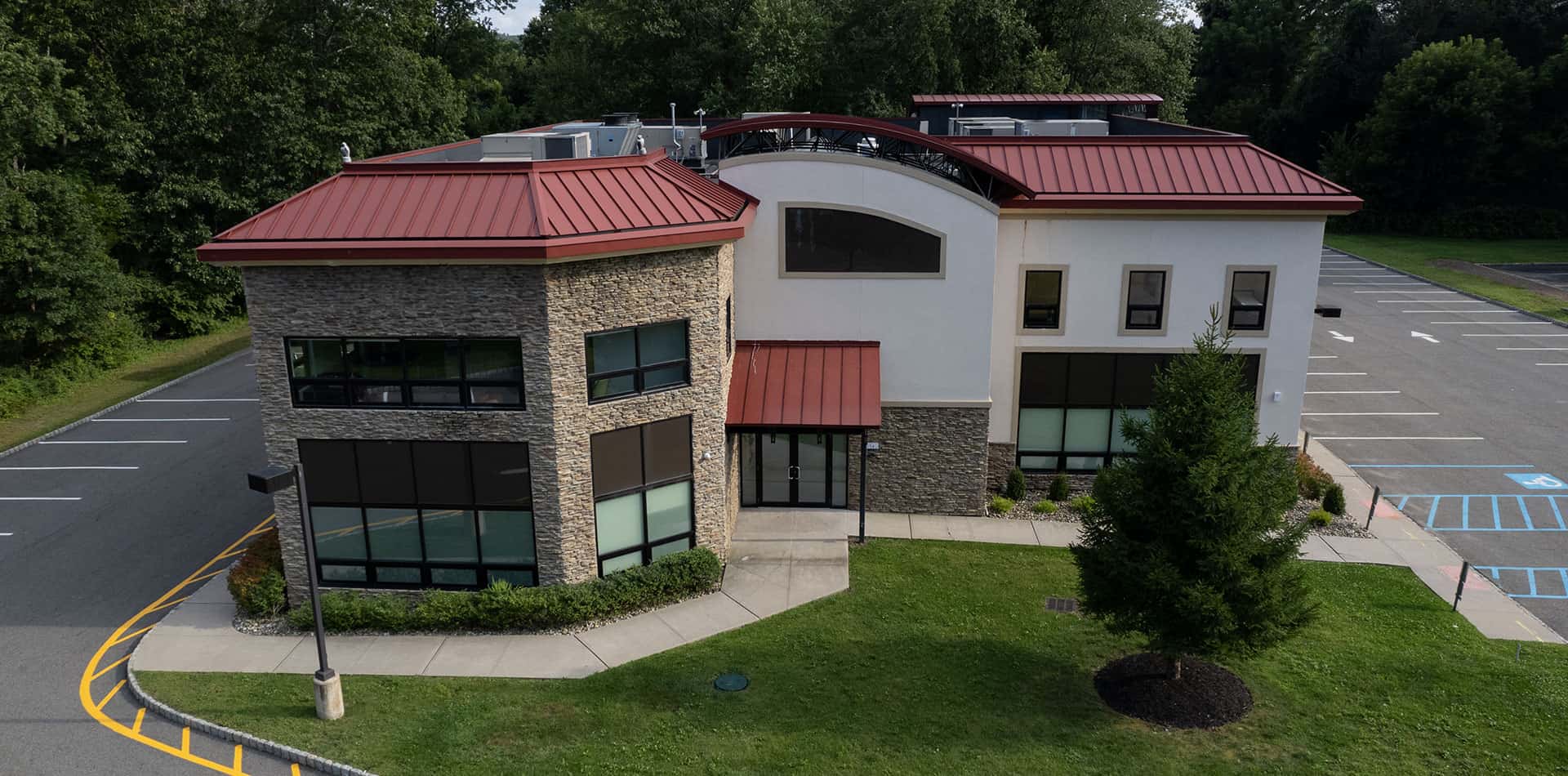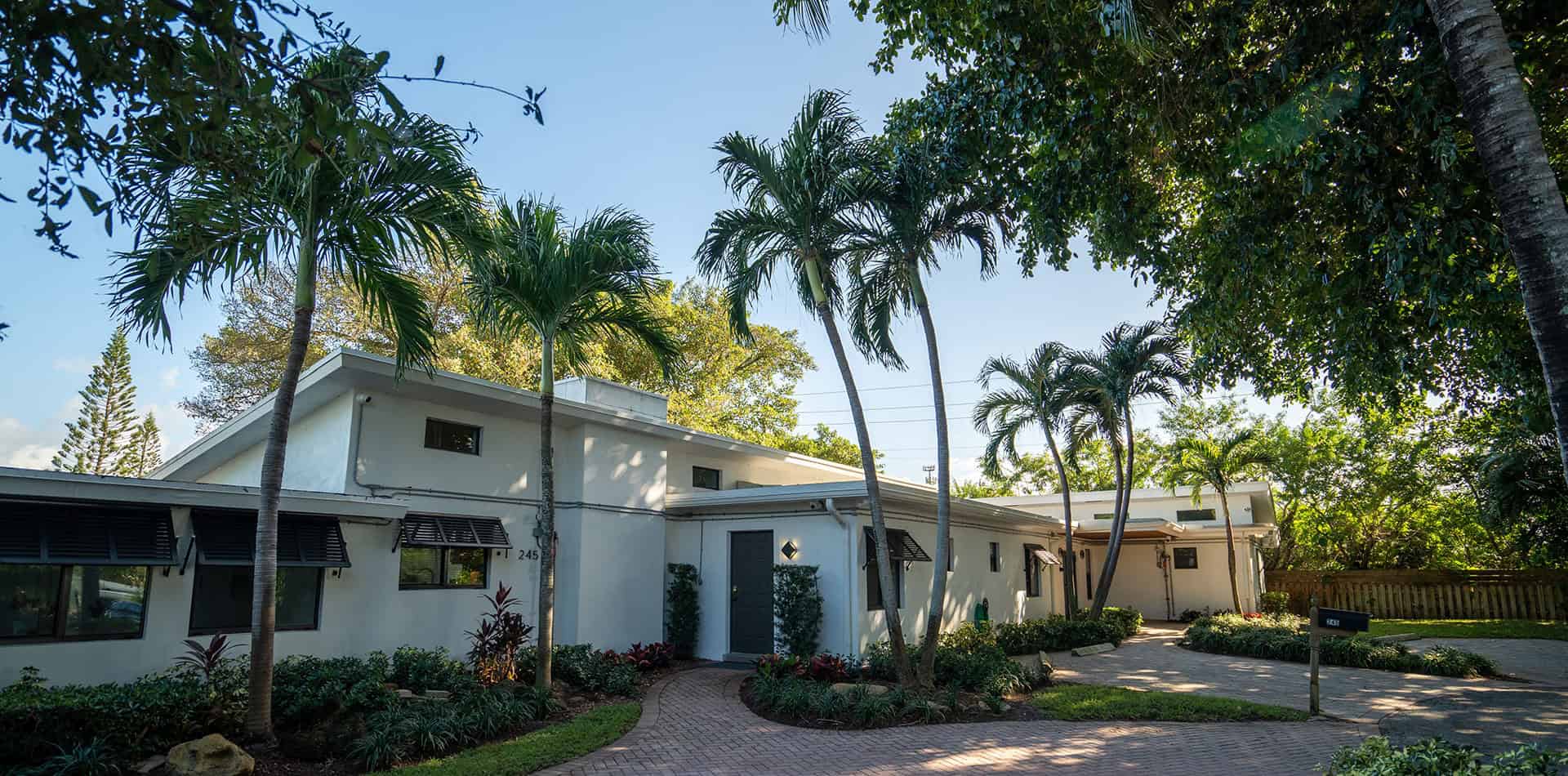Inpatient Residential
We will give you the support and guidance you need to get started on the road of long-term recovery.
Teen & Adolescent Residential Inpatient Treatment & Rehabilitation
Inpatient treatment for adolescents offers a dedicated and supportive environment for growth and healing. At Guardian Recovery adolescent residential treatment centers, young individuals build a strong foundation for a fulfilling life in recovery. They reside with peers on a similar journey and engage in a comprehensive daily treatment plan. Our team of medical experts, licensed therapists, and dedicated support staff facilitates treatment sessions. By participating in inpatient treatment with Guardian Recovery, teens learn to move past negative behaviors and embrace a brighter future.
If your teen faces behavioral health challenges, help is available. Inpatient treatment might be the right solution. At Guardian Recovery, we are nationally recognized for our commitment to offering top-notch treatment options to teens and young adults. Our extensive network of facilities focuses on empowering them with the tools and strategies they need to regain control of their lives. Contact us today, and our experienced advisors will guide you toward the best treatment options.
What Is a Residential Inpatient Treatment Program for Adolescents?
Residential treatment describes a level of care in which teens live at the treatment facility for 28-60 days, on average. While living at the facility, clients participate in a daily schedule of recovery-related activities, including group therapy, group activities, and individual therapy sessions with a licensed therapist.
While in residential inpatient, clients examine what might be blocking them or keeping them stuck. They start to identify negative thought patterns, destructive cycles of behaviors, and false beliefs that are holding them back from a life in recovery. Clients learn to acknowledge where they’ve played a part in their past troubles. They see how change is possible if they follow the path before them.
Get Local Help
Helpful, Recovery
Resources
- Our Approach
- Recovery Tips
- Frequently Asked Questions
- Insurance Check
- Ask a Question
Who Is Residential Inpatient Treatment Most Suitable for?
Residential treatment is designed for those in need of an immersive experience. It is designed to remove the participant from their physical and social setting to break their destructive habits and patterns of thinking. This level of care is designed for the treatment of a substance use disorder or mental health condition if your teen has already completed the medically monitored detox process deemed necessary by a professional.
What Is the Treatment Process in a Teen Residential Inpatient Program?
We carefully design our treatment plan to fit each teenager’s specific needs. The key part of our treatment is the close and personal work each teenager does with their individual counselor. This helps ensure that the therapy is focused and tailored just for them.
Our program also includes regularly scheduled group therapy sessions. These are important because they help teenagers communicate with peers, resolve conflict, and share their personal challenges and successes. These groups meet in a kind and understanding environment where everyone is encouraged to discuss their feelings and support one another. These sessions are also very important for helping adolescent clients develop healthy friendships with others who understand what they’re going through, as they all work towards a common goal.
Start Healing Today!
Choose recovery and take control of your life, it’s the path to a brighter future filled with health, happiness, and fulfillment.
Our Approach to Adolescent Holistic Treatment in a Residential Settin
At Guardian’s residential inpatient facilities, we take a holistic approach to recovery, meaning we treat the whole person. Behavioral health issues have root causes and negative consequences on every level, including physically, mentally, emotionally, socially, and spiritually. For a person to truly recover, treatment needs to address all these factors.
- To address the physical aspects of treatment, we utilize highly trained medical staff and participate in healthy activities and nutrition.
- To address the mental & emotional aspects of behavioral health, we utilize intense therapeutic work, including individual, group, and family therapy. Our therapists are trained in various therapeutic methods, including cognitive behavioral therapy, dialectical behavior therapy, motivational interviewing, trauma therapy, and the 12-step method.
- To address the social aspects of behavioral health, we have life skills courses, recreational therapy, and group workshops. Additionally, we foster bonds between our clients, staff, and outside recovery communities.
- To address the spiritual aspects of treatment, we utilize tools such as meditation, mindfulness, and nutrition therapy to help participants connect with their spiritual well-being.
Complimentary Insurance Check
Find Out Today!
"*" indicates required fields
Addressing Mental Health & Co-Occurring Disorders
Adolescence can be a particularly challenging time, during which your teen might grapple with multiple behavioral health concerns concurrently. It’s not uncommon for these issues to intertwine and manifest simultaneously, presenting a more complex clinical picture.
Our seasoned clinical team is not only well-versed in understanding these dynamics but also possesses extensive expertise in the precise diagnosis and effective treatment of these co-occurring disorders. With a combination of evidence-based group and individual therapy sessions, we ensure that your teen receives a tailored approach that addresses the intricacies of their unique situation. Under our professional care, your teen will be equipped with the vital tools, insights, and guidance essential for navigating and ultimately overcoming these multifaceted challenges.

Our Locations
Our Facilities & Teams Transform Lives
Changing lives by providing comprehensive support and rehabilitation, empowering individuals to overcome addiction and regain control of their health and well-being.
What to Expect in Residential Treatment
Teens and parents will meet with an intake coordinator upon arrival at the facility. This staff member will help you complete the necessary paperwork, obtain all necessary information, and conduct a search and documentation of all of your teen’s belongings. From there, you and your teen will be given a tour of the facility and an overview of the daily activities. These activities will include group and individual therapy sessions and activities to promote wellness and a new lifestyle.
Each day will have a set schedule of group sessions, meals, and activities. Your teen will remain involved in the daily activities until they complete the program and can transition to their aftercare plan safely. Family members are encouraged to participate in their teens’ treatment, including family group therapy sessions and designated family workshops.
As an adolescent client at a Guardian Recovery residential inpatient treatment center, here’s what one should expect during their stay:
- Personalized Care: Clients are assigned a personal counselor to work closely with them, tailoring their therapy to meet individual needs.
- Daily Therapy: Clients can expect to participate in weekly individual therapy sessions where they will explore personal issues in a confidential, one-on-one setting.
- Group Sessions: Clients join group therapy sessions where they share their experiences and learn from others in similar situations, developing better communication skills and building a support network.
- A Variety of Activities: Residential treatment includes activities designed to support recovery, such as art classes, physical exercise, and mindfulness practices.
- 24/7 Support: The center’s staff will be available at any time of the day or night to offer assistance, ensuring that clients’ needs are met around the clock.
- A Healing Environment: The center is set up to be a safe and nurturing space that promotes healing and wellness.
- The Development of Crucial Life Skills: Clients learn new coping strategies and life skills that will serve them well during their stay and beyond as they continue their recovery in daily life.
Adolescent clients can expect their time at the center to be one of growth, learning, and self-discovery, all within a structured and caring environment.
The Benefits of Residential Inpatient Treatment for Your Teen
Residential treatment can be a highly effective tool for your teen. Inpatient programs are specifically designed to remove your teen from familiar influences, locations, and patterns that have proven to be harmful. Programs are intended to begin the work of establishing healthier patterns while removed from distractions. Teens can form healthy bonds with others who are like-minded in pursuing healthier lifestyles, all while working with trained clinicians to identify and process previous unhealthy ways of coping with life.
Residential Inpatient Treatment as Part of an Adolescent Continuum of Care
READY TO MAKE A CHANGE?
Your Next Steps
Frequently Asked Questions
If your teen continues to struggle with negative patterns of behaviors in their current environment, then residential treatment will be an option to explore. Residential treatment is also the next step in a continuum of care if your teen has completed a detox program.
Residential treatment is a level of care that involves teens living at the treatment facility for 28 to 90 days while taking part in group and individual therapy sessions. Other levels of care may not require teens to live on campus or may focus more on their medical stability if needed.
Yes. Your teen will be under the 24-hour supervision of highly trained clinical staff.
Your teen will participate in group and individual therapy sessions at scheduled times each day and recreational activities, including art therapy, music therapy, and yoga therapy.
Yes. Though teens will not have access to their cell phones, they can call their family members during scheduled times after a short “blackout” period at the beginning of their program. This period allows teens to focus their time and energy on adjusting to their new surroundings in treatment.
Programs typically run between 21 and 90 days, depending on your teen’s requirements and continuum of care.
Your child will be encouraged to transition to the next level of their continuum of care. This will typically include long-term sober living or a step-down plan to an IOP program.
Yes. Though they will not be able to continue their regularly scheduled schooling, special arrangements allow students to complete their educational requirements and stay current in their schooling.
Contact Us Today to Learn More
Reviewed professionally for accuracy by:

Ryan Soave
L.M.H.C.
Ryan Soave brings deep experience as a Licensed Mental Health Counselor, certified trauma therapist, program developer, and research consultant for Huberman Lab at Stanford University Department of Neurobiology. Post-graduation from Wake Forest University, Ryan quickly discovered his acumen for the business world. After almost a decade of successful entrepreneurship and world traveling, he encountered a wave of personal and spiritual challenges; he felt a calling for something more. Ryan returned to school and completed his Master’s Degree in Mental Health Counseling. When he started working with those suffering from addiction and PTSD, he found his passion. He has never looked back.



